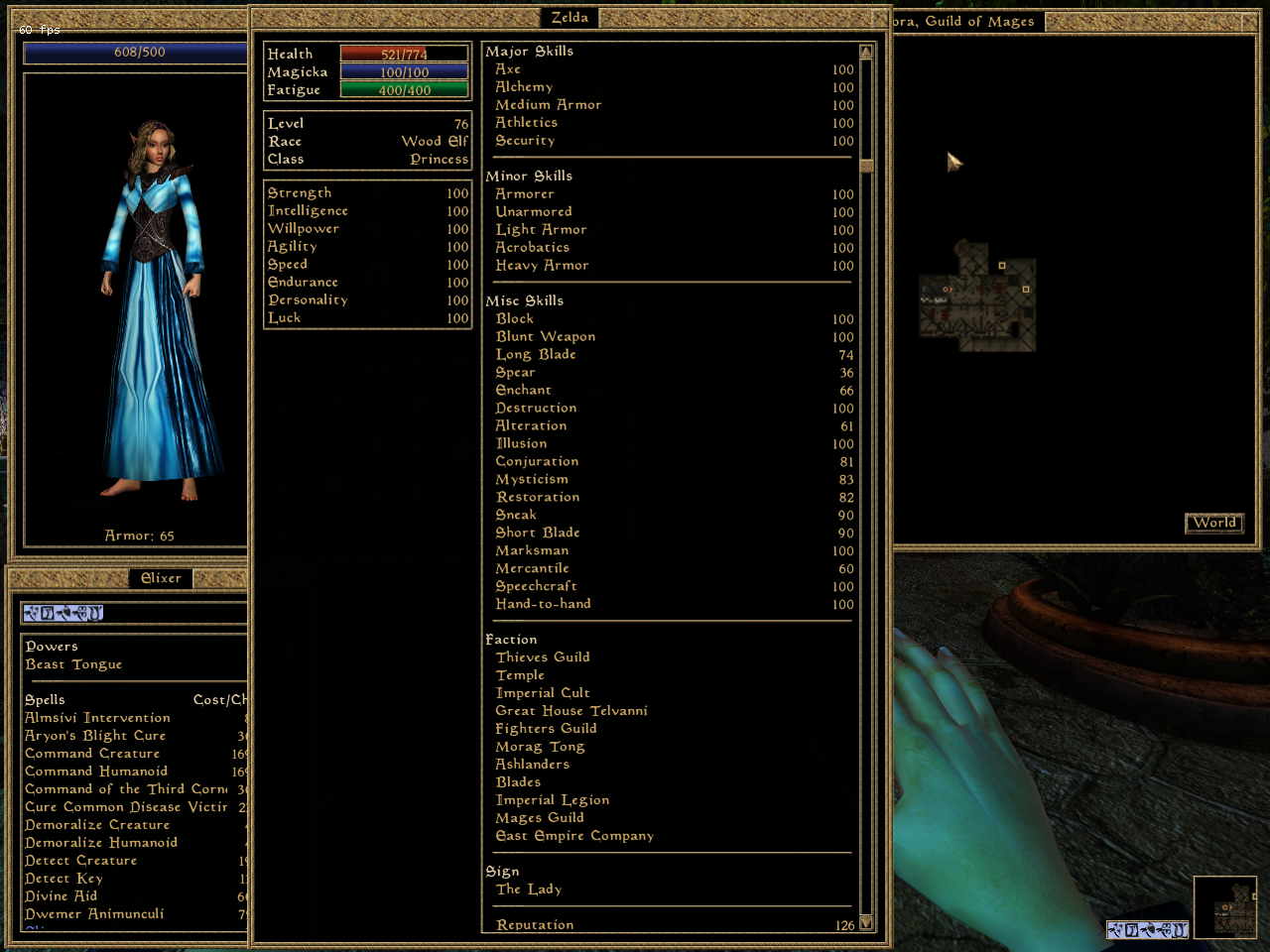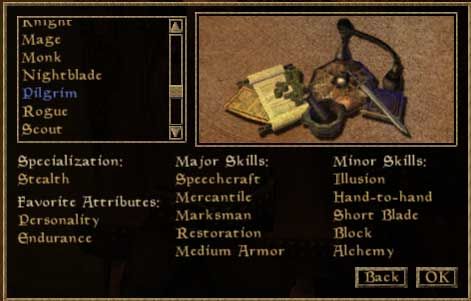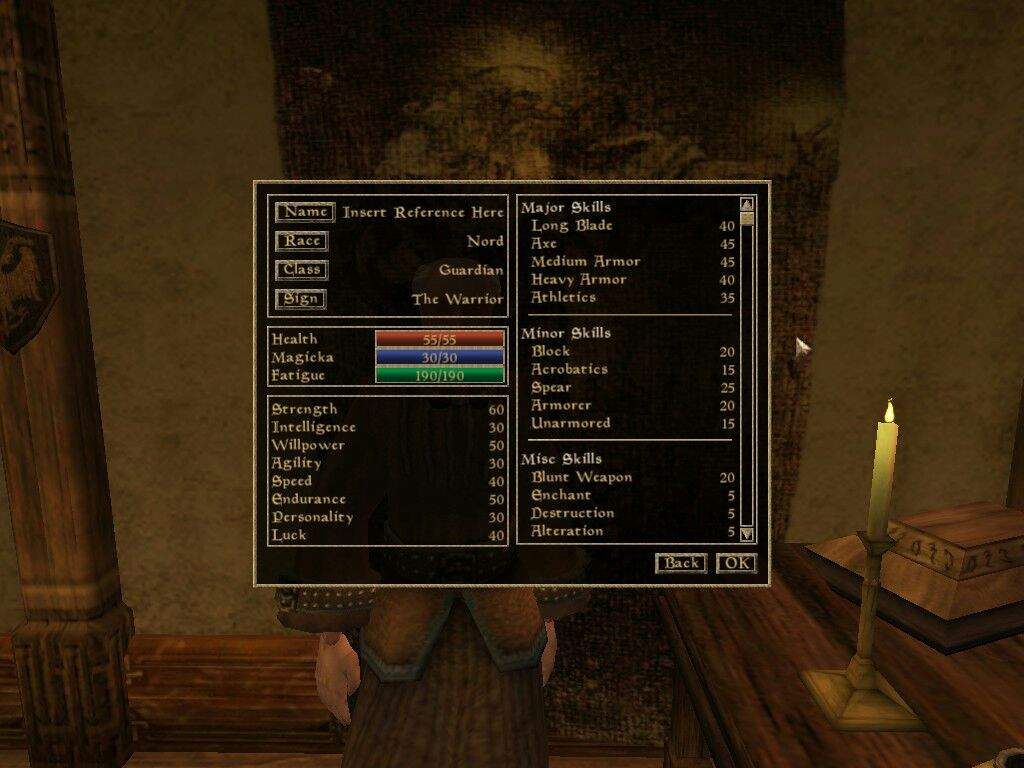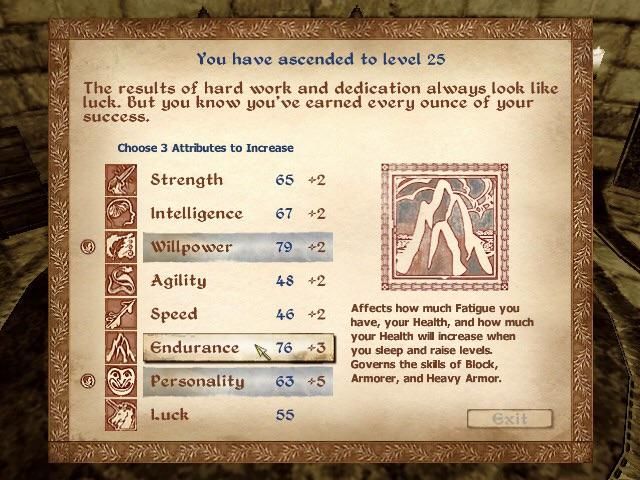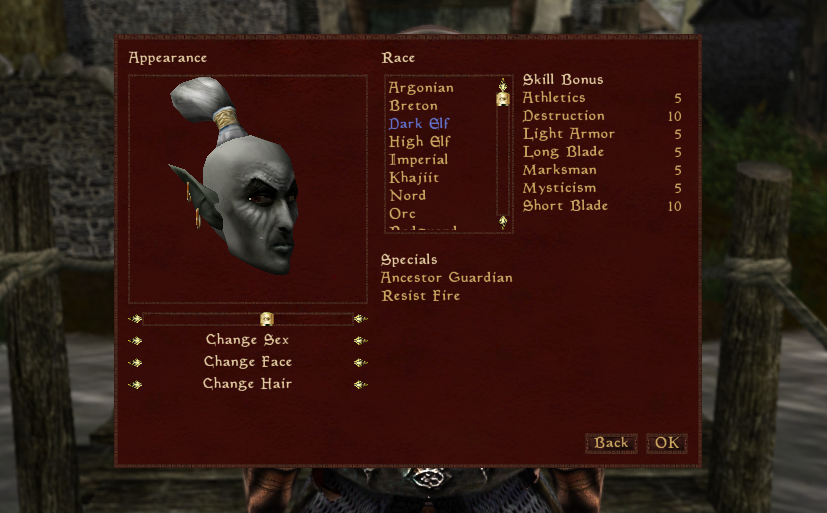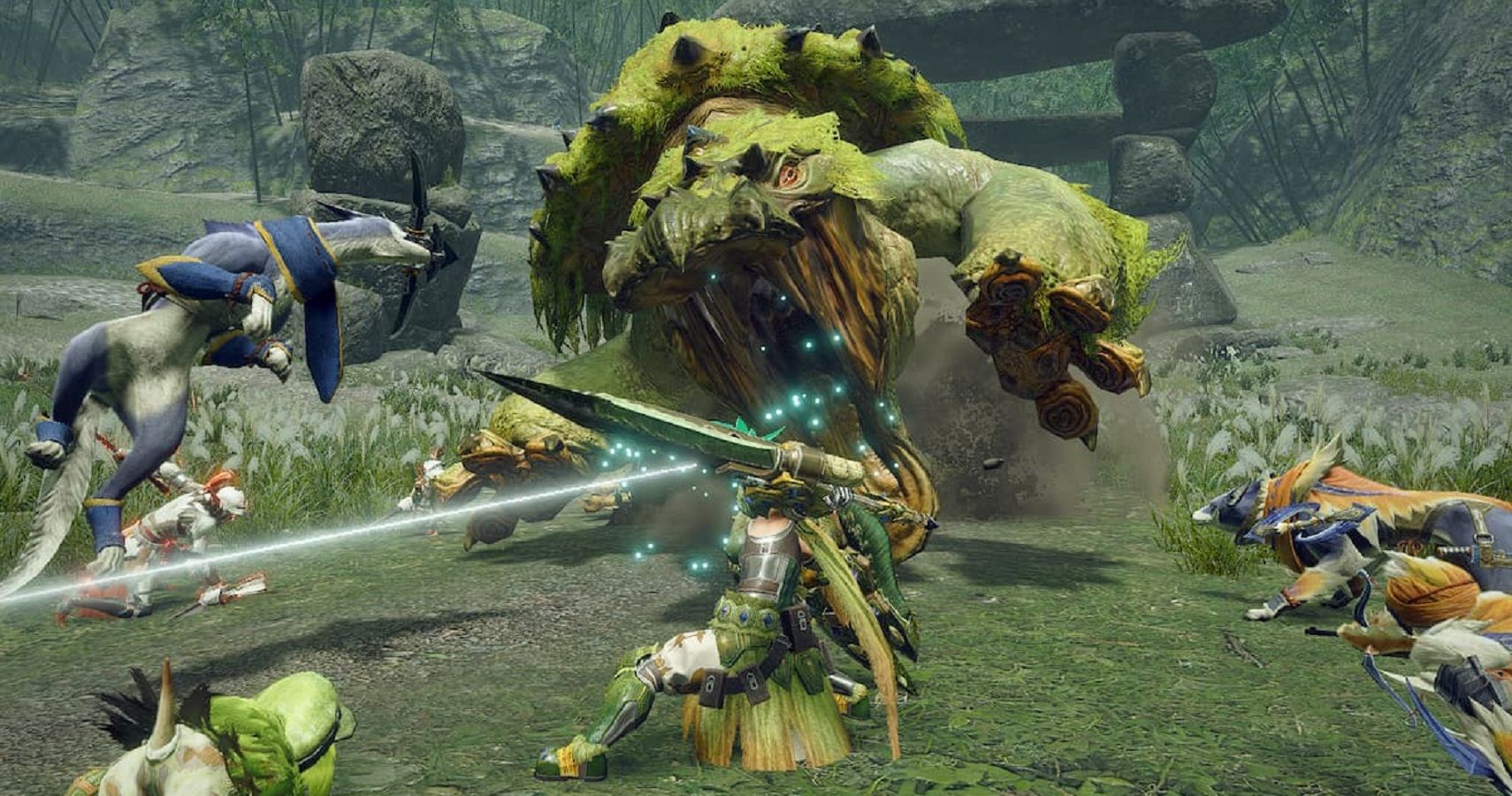Though Morrowind shares some common elements with Oblivion and Skyrim, several mechanics set it apart from the later Elder Scrolls installations. One of the most prominent differences would be the skills and attribute systems.
Unlike some games, Morrowind isn’t about a quick grind to player level 100. In fact, you’ll want to pay closer attention to the skills you’re leveling along the way, which consequently affect corresponding attributes as well. If you’re having trouble making heads or tails of Morrowind’s convoluted leveling system, this guide will help you sort it all out so you can prioritize your leveling goals.
The Difference Between Skills and Attributes
While they are interconnected to some extent, skills and attributes are contrasted to each other. You can think of skills as being active abilities that become more proficient the more you use them. In other words, you can actively level them up by practicing them.
Attributes are more like passive characteristics that determine the proficiency of your character’s traits or abilities. Most of them act as an accuracy percentage meter in that they determine the likelihood of a certain action being performed successfully or getting an optimal outcome through dialogue. For instance, various primary attributes govern the effectiveness of different skills, such as the Strength attribute affecting skills like Acrobatics, Armorer, and Longblade, to name a few.
List of Skills and Attributes
Below are the skills listed under the primary attributes they are ruled by and the style classification of each skill in parentheses, which will be explained further in a minute.
Strength Attribute
- Acrobatics (Stealth) – Determines the height of your jumps and how much fall damage you incur.
- Long Blade (Combat) – Proficiency wielding longswords and the like, such as claymores, katanas, broadsword, and sabers.
- Blunt Weapon (Combat) – Proficiency wielding blunt weapons.
- Axe (Combat) – Proficiency wielding axes.
- Armorer (Combat) – Proficiency in repairing armor.
Intelligence Attribute
- Security (Stealth) – Proficiency in overcoming security measures with abilities such as lockpicking and disarming traps.
- Alchemy (Magic) – Proficiency in crafting potions.
- Enchant (Magic) – Proficiency in enchanting weapons and armor.
- Conjuration (Magic) – Proficiency casting conjuration spells.
Endurance Attribute
- Medium Armor (Combat) – Proficiency in the utilization of medium armor.
- Heavy Armor (Combat) – Proficiency in the utilization of heavy armor.
- Spear (Combat) – Proficiency wielding spears.
Willpower Attribute
- Alteration (Magic) – Proficiency casting alteration spells.
- Mysticism (Magic) – Proficiency in casting mysticism spells.
- Destruction (Magic) – Proficiency casting destruction spells.
- Restoration (Magic) – Proficiency in casting restoration spells.
Agility Attribute
- Block (Combat) – Proficiency blocking attacks.
- Sneak (Stealth) – Proficiency going undetected while sneaking.
- Light Armor (Stealth) – Proficiency in the utilization of light armor.
- Marksman (Stealth) – Proficiency in archery.
Personality Attribute
- Illusion (Magic) – Proficiency in casting illusion spells.
- Mercantile (Stealth) – Affects shop prices. The mercantile skill can only be improved by haggling, not merely engaging in sales as with Oblivion.
- Speechcraft (Stealth) – Proficiency in persuasion tactics, i.e., “Persuade” dialogue options.
Speed Attribute
- Athletics (Combat) – Proficiency in athletic abilities (running, jumping, swimming, etc.) Additionally, the Athletics skill influences the Endurance attribute.
- Unarmored (Magic) – Proficiency in unarmored combat.
- Short Blade (Stealth) – Proficiency wielding daggers.
- Hand-To-Hand (Stealth) – Proficiency in fisticuffs combat.
Luck Attribute
This is the only primary attribute that has no corresponding skills.
Skill Classifications
Skills can be considered major, minor, or miscellaneous skills for different classes. Skills classified as major or minor for your chosen class will add to the skill points required to level up your character each time the skill gains a point. Miscellaneous skills, the ones which are not noted under your class skillset, will not.
The skills are further categorized into three stylization categories: Combat, Magic, and Stealth. These are also known as the Guardian signs, The Warrior, Mage, and Thief; birthsigns which govern themselves and three other birthsigns. The skills and attributes which fall under any birthsign are categorized under the corresponding Guardian sign.
Of course, Morrowind allows players to mix and match skills to create a custom class, regardless of what classification the skills are categorized under. These categorical classifications simply represent the type of skill and give you a hint as to what classes the skills are best suited for.
Primary Vs. Secondary Attributes
Both primary and secondary attributes affect the character’s actions in gameplay. The difference is primary attributes affect the effectiveness or accuracy of the character’s actions, while secondary attributes affect the player’s abilities to execute actions at all. For instance, a high Willpower allows for stronger and more proficient spellcasting, but without a Magicka reserve, the character won’t be able to cast any skills in the first place.
Primary Attributes
- Agility – Affects the ability to dodge, block, and land attacks along with actions such as movement speed, jumping, scaling steep surfaces, sneaking, dismantling traps, and lockpicking.
- Endurance – Directly correlates to the secondary attributes Health and Fatigue, influencing their maximum thresholds.
- Intelligence – Influences Magicka reserve. 15% of Intelligence is directly proportionate to Magicka regeneration during one hour of rest as well.
- Luck – Holds no sway over random loot values as it did in other games. Instead, it marginally increases good fortune when performing a wide array of actions.
- Personality – Affects a character’s overall sway and likeability, influencing things such as merchant prices, getting sensitive information, and overall NPC manipulation.
- Speed – Increases walking, running, and swimming speeds. Speed also influences levitation and the lateral distance covered when jumping.
- Strength – Increases attack damage along with holding sway over the character’s starting Health stat and thresholds for Encumbrance and Fatigue.
- Willpower – Affects the proficiency of all magic spells, not just those correlated to Willpower. It also influences the character’s inborn resistance to incoming magical attacks.
Secondary Attributes
- Encumbrance – Carrying weight equal to five times the character’s strength. Actions such as running speeds and jumping become impaired as the character becomes more over-encumbered.
- Fatigue – This is the calculated sum of Willpower, Agility, Strength, and Endurance. Fatigue determines how far you can push your character in strenuous activities such as running and all forms of combat.
- Health – The health bar is half the total value of the character’s Strength and Endurance. Naturally, when your health is fully depleted, you die.
- Magicka – Your Magicka reserve is the power you pull from in order to cast spells. Its base value is equal to Intelligence but can be additionally affected by various multipliers.
Leveling Skills and Attributes
Advancing Skills
Like the later games, Morrowind facilitates leveling up skills by usage. Using skills will also advance their corresponding primary attributes as the skills themselves level up. In turn, secondary attributes are reliant on the primaries and will be recalculated each time a primary attribute gains a point.
If you want to level up a skill that you aren’t actively putting to use, you can increase the skill by studying. Hitting the books for a quick study session is a tried and true method that has persisted through the later games as well. Be sure to skim through any books you come across, as only certain ones will contain the knowledge you’re looking for.
Training is also a proven method that has remained prevalent throughout the Elder Scrolls series. You’ll meet specialized NPCs throughout the land of Morrowind whom you can pay to train you in their various fields of expertise. In The Elder Scrolls III: Morrowind, each trainer is qualified to train you in a skillset of three different skills.
Advancing Attributes
Attributes are more passive in their incremental growth. As mentioned above, Attributes are leveled up through the increase of the skills they govern. Attributes gain levels in conjunction with each character level-up. The exact amount an attribute’s proficiency increases is determined by the amount of usage its skill(s) have gotten between character level-ups. A multiplier ranging between 1x to 5x notates just how much an attribute is increasing each level.
Luck is the odd one out, being that it doesn’t hold sway over any specific skills. So instead of its proficiency increasing based on how many times a skill was used, Luck increases by the number of times it affected any actions taken between character level-ups. The Luck attribute should be leveled up to a base minimum of 50 to negate the possibility of any negative effects regarding the accuracy of skills.
Character Customization
Character customization determines what skills and attributes are going to work best for you. With the vast amount of possible combinations in the character’s birthsign, race, and class, each character will be an individual and provide a unique gameplay experience.
Skills
The birthsign you choose will allot a bonus of 5 points to each skill categorized under it. Those skills will then prove easier to gain proficiency with throughout gameplay.
Depending on which race you choose, certain skills may have a higher base level pertaining to that race’s special skill sets. The Class you choose may also raise the base level of different skills along with the rate of advancement for certain ones.
Attributes
Race affects an attribute’s base level at the start of the game. Depending on the race, an attribute can be positively or negatively affected. The base value of all attributes before selecting a race is 40. Regardless of the race, Luck holds a base value of 40 across the board, but many others take a ten-point deficiency from several races and up to a 15-point set back with select races. However, attributes can also be boosted to a base maximum of 50 points with other races. Whether a character is male or female impacts these bonuses.
Each class has two characteristic attributes which allow them to perform certain skills better from the get-go. In turn, these attributes can be increased by using its corresponding skills to level up, as mentioned earlier.
NEXT: A Simple Breakdown Of The Complex Elder Scrolls Universe
- Guides
- Morrowind
Kim is a freelance writer for TheGamer. She recently began writing online articles in the summer of 2019 when she was approached on Discord to contribute some articles and guides for Wizards Unite World. Kim is a fan of fantastical genres, some of her favorite titles including Harry Potter, The Lord of The Rings, and The Witcher. She’s a bookish Ravenclaw eccentric, with an inquisitive sense for adventure. Kim seeks to use her writing as a means to travel and explore, hoping to share her findings and spread curiosity.
Source: Read Full Article
